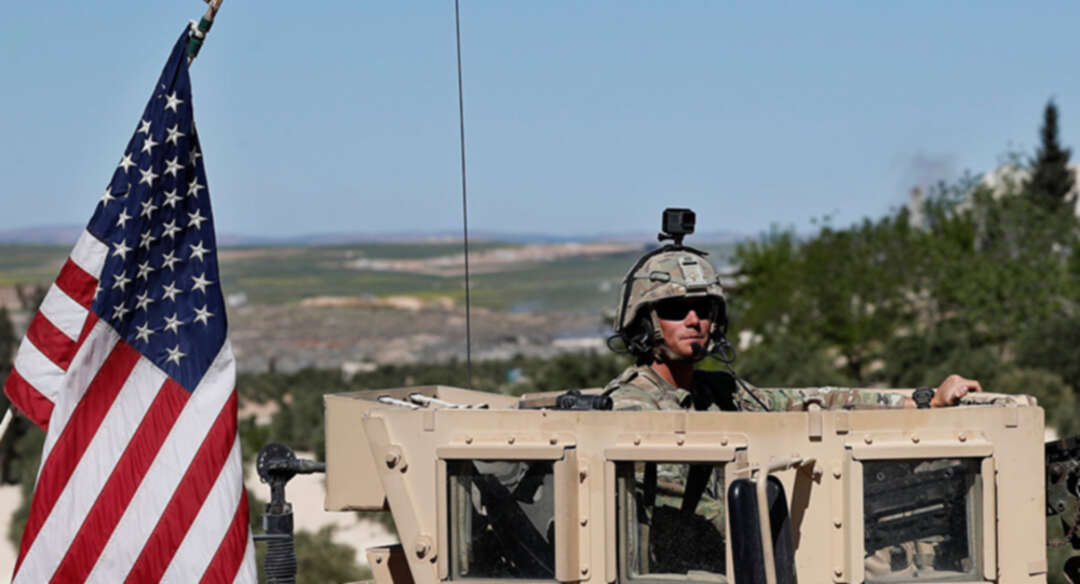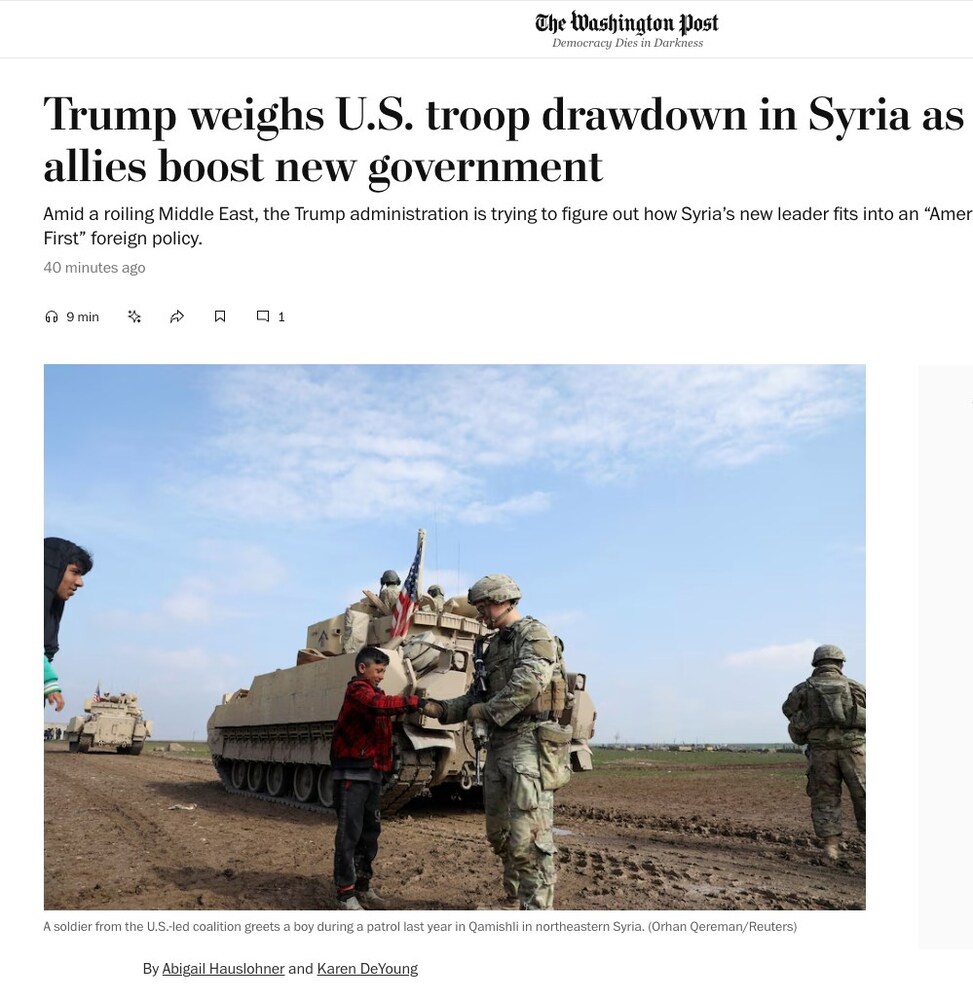-
Trump Plans to Reduce U.S. Troops in Syria

As President Donald Trump explores options to withdraw U.S. forces from Syria and halts some humanitarian aid programs, he is facing increasing disagreements with allies in Europe and the Middle East who have begun supporting the new Syrian government.
Iran and Russia's influence in the region has quickly waned, as President Ahmad al-Sharaa, previously known for his connections to al-Qaeda, led the effort to overthrow dictator Bashar al-Assad in December. Although al-Sharaa is considered a nominal transitional leader, he shows openness towards the West, which some of the United States' allies, except Israel, view as an opportunity for a victory in a region plagued by turmoil.
However, the Trump administration remains cautious, as the sanctions imposed on Damascus since Assad's era are still in place. A senior U.S. administration official explained, "We are still dealing with Syria very carefully" until al-Sharaa ensures that his government is rid of foreign jihadist elements and remnants of al-Qaeda and demonstrates its ability to unify the country's diverse minorities.

The official, who preferred to remain anonymous due to the sensitivity of the topic, indicated that U.S. objectives are not solely focused on supporting the Syrian people but also on ensuring that Iran and ISIS do not return, interests considered vital for the American public.
Many allies, experts, and lawmakers from both parties believe that the Trump administration's hesitant actions could lead to adverse outcomes. James E. Risch, Chairman of the Senate Foreign Relations Committee, stated during a hearing in February that a lack of U.S. engagement or weak involvement could allow Russia and Iran to regain their influence.
Two months later, the U.S. administration is still unable to make a decision regarding the withdrawal of troops or the expansion of their role. A European diplomat conveyed to the U.S. that "they do not have a clear policy."
During an international meeting in Brussels, a U.S. official presented the new Syrian foreign minister with a list of eight "confidence-building steps" that the government should take to consider a partial easing of sanctions. The list includes allowing the U.S. to conduct anti-terror operations in Syria against individuals deemed threats.
While the U.S. administration contemplates reducing its military presence in Syria, the list also demands that the Syrian government issue an official declaration supporting the "Operation Inherent Resolve," which includes about 2,000 U.S. soldiers stationed there to combat ISIS.
Since taking office, Trump has spoken little about Syria; when asked about the withdrawal of U.S. troops, he mentioned that he would make a decision on the matter. Trump previously affirmed that Syria is "a mess in itself" and that the country does not need more foreign interventions.
While discussions of a complete troop withdrawal are not currently on the table, reports indicate there are plans to reduce the military presence. A Defense Department official stated that moves are underway but no decisions will be announced before negotiating with Iran regarding its nuclear program.
As ISIS continues to escalate its attacks, officials face increasing risks, with Syrian Democratic Forces warning about deteriorating conditions in detention camps in northeastern Syria.
Concerns are growing among allies and experts about al-Sharaa's ability to build an inclusive central government. Without relief from sanctions, his chances of success remain limited. Marwan Muasher, Vice President of the Carnegie Endowment, remarked: "There is electricity for only a few hours a day, and the economy is in shambles."
As Russia seeks to regain its foothold through shipments of oil and essential goods, allies hold worries about the possibility of Iran returning to Syria without international support.
Sebastian Gorka, a National Security Council official, seeks to oppose any concessions to the new government, arguing that al-Sharaa still poses a significant challenge, especially amid reports of his adherence to extremist Islamic values.
With sectarian conflicts on the rise, the latest being Alawite attacks against government forces, U.S. officials are closely monitoring the developments. They acknowledge that the new government lacks sufficient representation of minorities.
While some negotiators express an optimistic outlook towards the new government, the United States warns of the potential dangers.
Tags
You May Also Like
Popular Posts
Caricature
opinion
Report
ads
Newsletter
Subscribe to our mailing list to get the new updates!






















